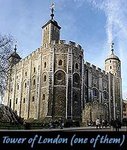
Eden is one of those powerfully evocative words which people love to use in the most bizarre contexts. The professional atheist Richard Dawkins uses it in a book title - "River out of Eden". Now I have been through the Eden Project in Cornwall, 280 miles south-west of London. Go a bit further and you reach Land's End - the last bit of the British mainland.
The Eden Project is the biggest tourist attraction in the South-West of England. Basically, it is an enormous botanical showcase, centred on two vast hothouses. The larger of the two, the Tropical zone, is the largest hothouse in the world. I much preferred the environment in the smaller Mediterranean zone, far less hot and humid. Both are wonders of architecture and engineering. In the Tropical zone, a waterfall cascades over 100 feet vertically through the various levels of lush vegetation.
 Along with smaller buildings they are sited in a disused china clay pit, an abandoned relic of Cornwall's industrial past.
Along with smaller buildings they are sited in a disused china clay pit, an abandoned relic of Cornwall's industrial past.It is not just the thousands of plants in this artificial environment. You know you have arrived in Cornwall when you see palm trees fluttering in the brisk Atlantic winds. Actually palm trees can be found on the west coast of Scotland, hundreds of miles north, thanks to the Gulf Stream. But it is still a lovely reminder of the contrasts to be found in such a small island. On the north coast of Scotland you have a bleak treeless landscape populated with sub-artic flora. Here you can imagine yourself in the Mediterranean.
 I was dimly aware that Truro had a cathedral. I was completely unprepared for its size and beauty. Like the cathedral in Kirkwall in the Orkney Islands, it is way out of proportion to its surrounding town. It is a reminder of the time when Cornwall was very rich as a result of the tin mining industry.
I was dimly aware that Truro had a cathedral. I was completely unprepared for its size and beauty. Like the cathedral in Kirkwall in the Orkney Islands, it is way out of proportion to its surrounding town. It is a reminder of the time when Cornwall was very rich as a result of the tin mining industry.A truly bizarre relic of the Cornish past is the occasional use of the Cornish language on official signs. This is even more pointless than the bilingual signs in Wales and Ireland, where at least a small percentage of the population still speak their Celtic tongue. The last person to have Cornish as his language of choice died in 1770. It "survives", if you can call it survival, just as an academic revival by a handful of enthusiasts.
Land's End itself is a disappointment as much as its Scottish equivalent, John O'Groats, on the very north-east tip of the British mainland. John O'Groats had little more than a souvenir shop and a cafe, but at least the cafe was open when I visited last June. At Land's End there is a larger cluster of buildings that you might call a theme park, if you were feeling generous. But nearly everything was shut in January, apart from a souvenir shop. As I bought my postcards, the shop assistant regretfully told me that there was nothing open even for a cup of coffee.
But the Lizard Point made up for it all. The weather in January on the most southerly tip of mainland Britain was better than that in June on Dunmore Head, the most northerly part of the mainland. In January the Lizard was bathed in sunshine, the sea was blue and it was a fantastic day to be alive in such wonderful scenery, with subtropical plants tossing in the wind.



No comments:
Post a Comment